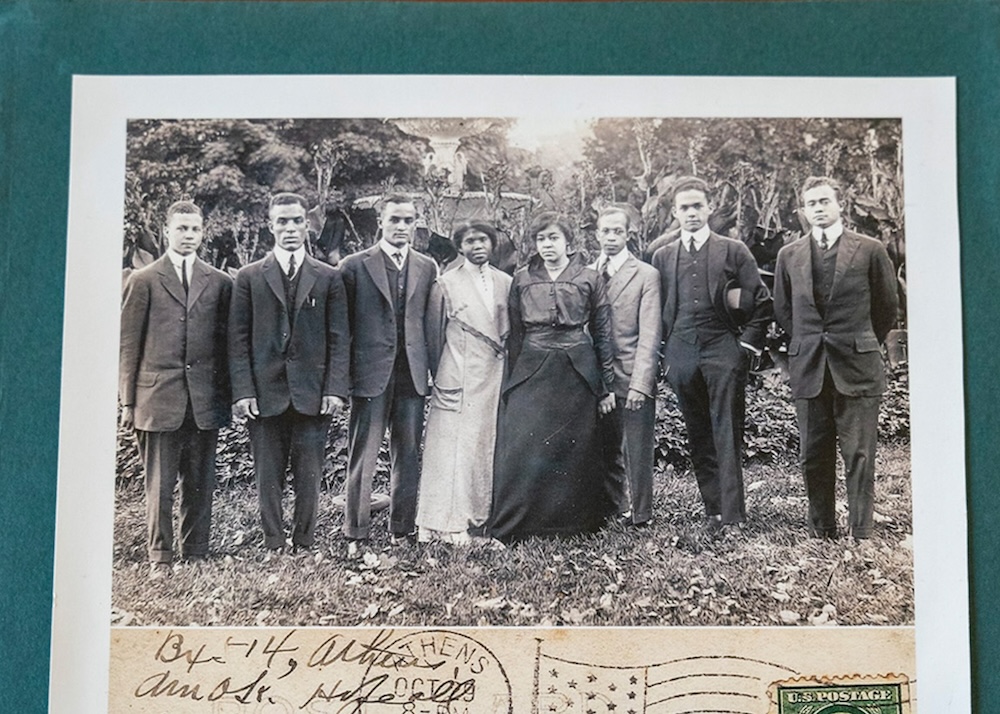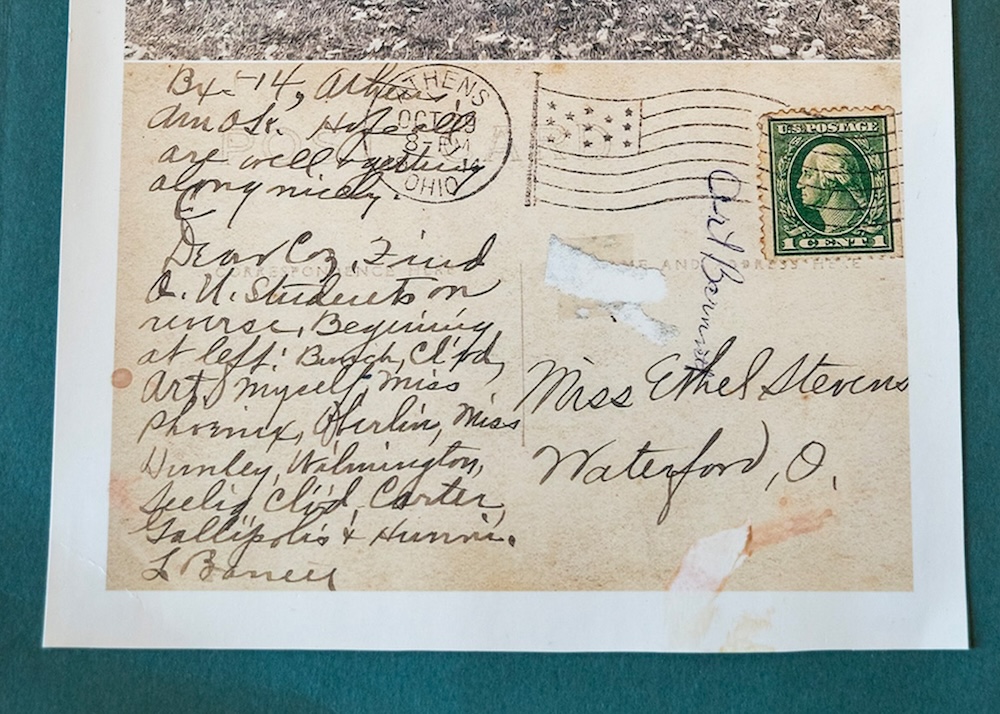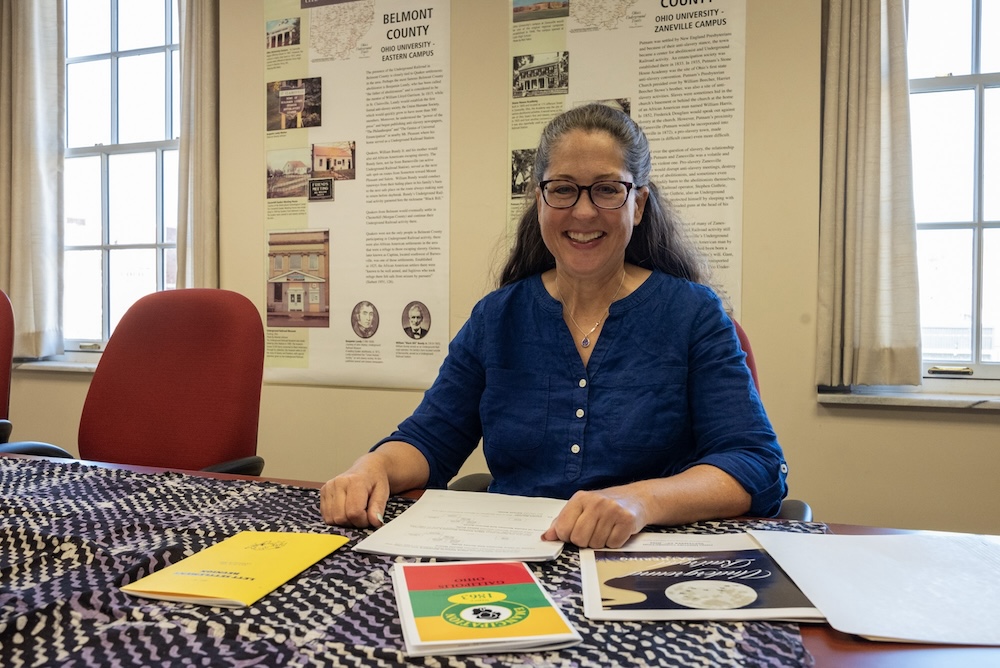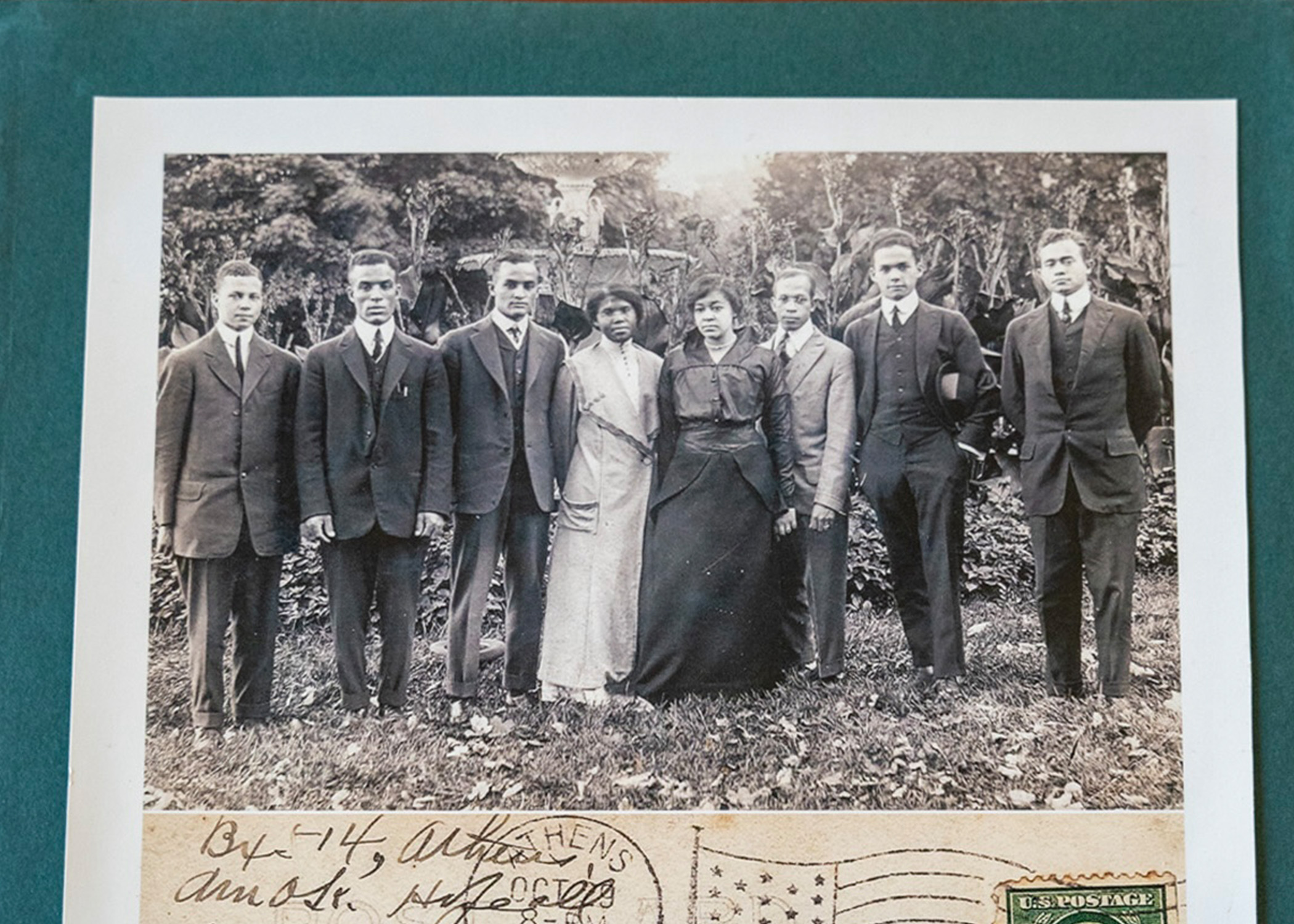Files, photographs, digital content, cassettes, VHS tapes: these are just a few of the resources housed in the African American Research and Services Institute (AARSI). The treasures date back at least two centuries and tell the stories of African Americans who lived in the Southeast Ohio region and beyond.
Pictured above: From AARSI's collection, a postcard sent to Ethel Stevens in Waterford, Ohio. The Stevenses were a family of color who moved from Maryland to the Waterford area. Martha Hunley Blackburn is pictured fourth from the right. OHIO's first Black female graduate (class of 1916), Blackburn is a partial namesake of the Templeton-Blackburn Alumni Memorial Auditorium on the Athens campus.
The value of outreach
AARSI’s mission, as published on the intitute's website, is threefold: to encourage interdisciplinary and community-based research related to the experiences of people of African descent; to build strategic partnerships across the campus, institutions and global community; and to conduct primary research focused on African American experiences in rural America, especially the Ohio River Valley.
Part of the African American Studies Department, AARSI is located in Bentley Hall Annex, room 360. The institute is ready to re-open with the combined efforts of Director Andrea Frohne, a professor of African art history, and Gary Holcomb, professor and chair of the African American Studies Department.
Frohne and Holcomb see this as more than just a re-opening. It's an opportunity to educate, assist, and engage the community.
“It’s not just reviving the past; it’s starting something fresh," Holcomb said.
Community members will be encouraged to take advantage of AARSI’s resources. The institute is developing connections with community organizations including Mount Zion Black Cultural Center, Tablertown People of Color Museum, Multicultural Genealogical Center, and John Gee Black Historical Center.
"Community engagement is incredibly important to us," Frohne said.
AARSI also strives to be a resource for students, who can use the archive materials for research assignments by making individual appointments. In addition to being a resource for materials, AARSI also plans to help students further develop their projects outside of the archive through academic research, community work and other efforts.
History in hand

The postcard featuring Martha Blackburn, OHIO's first Black female graduate...

...Along with the postcard's opposite side showing the message to its recipient: the names and hometowns of the "OU students on reverse," along with the sender's well wishes.
AARSI’s reading room is the meat and potatoes of the institute. Archival materials from all over Southeast Ohio, spanning centuries, are housed in this space. From photographs to cassette tapes to digital material, the institute offers content that students and community members are sure to find engrossing.
The institute is currently in the process of digitizing many of their physical files, including the postcard featuring Martha Hunley Blackburn.
A triumphant return

After running into AARSI's former director at a conference, Andrea Frohne sought out the archives and worked with Gary Holcomb to re-open the facility.
The institute was established in 2003 as an extension of the African American Studies Department. Vibert Cambridge began the institute, and Déanda Johnson served as its director until 2010. When Johnson left the University, AARSI became inactive.
But a chance meeting at a conference would bring it back to life. In September of 2022, Frohne ran into Johnson at a symposium on Black life across southeast Ohio. The former director referred to the archive during her presentation; it was the first Frohne had heard of the collection.
"I set about to find it," Frohne said. "Once I did, I requested that we open it back up."
After gaining that access, Frohne and Holcomb worked closely together, going through the archive and brainstorming ideas for reviving AARSI with Frohne as its new director. She assumed the role in May of this year.
A reception marking AARSI’s reopening is scheduled Nov. 1 from 4-6 p.m. in Bentley Hall Annex, room 360.

